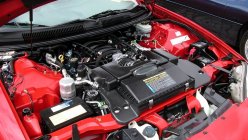All mechanical types of equipment in the world are susceptible to damage, and your vehicle is no exception. This is where the importance of regular car maintenance comes into play.
If you ever experience that your vehicle is losing power when you accelerate, most probably, the reason is that you don’t have enough fuel or there can be some electricity supply issues to the engine. This article from Philkotse.com will tell the most common reason why your vehicle loses power when accelerating.
1. Low compression (diesel and gas engine)
A good cylinder compression in the whole combustion process will ensure that the engine of your vehicle will function properly and will provide the needed amount of power to the car.
If your vehicle has low compression, the engine's power will be low as well. As a result, the engine will not function properly. To solve the problem, you first need to diagnose if the cylinder compression is indeed low.
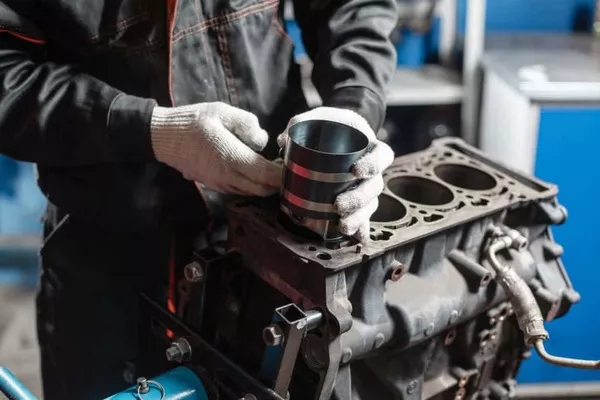
If your vehicle has low compression, the engine's power will be low as well
>>> Read more: Fast drives tip: Car features and modifications for acceleration.
2. Clogged fuel filter (diesel and gas engine)
You will see the fuel filter situated in between the fuel pump and fuel injectors of the car. The fuel filter is responsible for screening any impurities present in gasoline. This way, the gasoline sent by the fuel pump to the engine will be free from any impurities.
The fuel filter is technically a barrier between the engine of the car and the contaminants in the gasoline. if your vehicle has a clogged or damaged fuel filter it will not be able to perform its intended job properly. Abrasive contaminants will then find their way into your engine and will cause damages that will be too expensive to repair.
If that occurs, your engine will gradually lose its power and will impair the overall functionality of the car. The most effective solution for this is to replace the fuel filter of your engine.
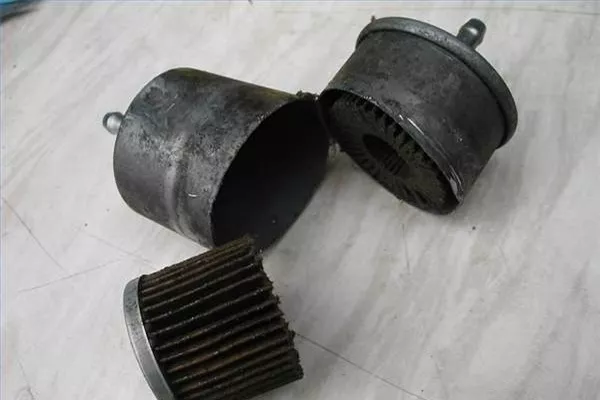
A clogged or damaged fuel filter will not be able to perform its intended job properly
3. Bad air filter
The role of the engine’s internal combustion chamber is to mix air and gasoline to generate the needed power to run the car. The air must pass through the air filter first to screen out debris, bugs and other kinds of impurities the air contains before it can enter the chamber.
If any impurities get its way into the engine, it could result in severe engine damage. But, take note that air filter gets clogged or damaged after it has been used for a long time already.
If the air filter of your car is already clogged, the amount of air which can get into the internal combustion chamber will be limited. It will have a negative impact on the car's functionality because the engine will fail to generate the needed amount of power to make the car work.
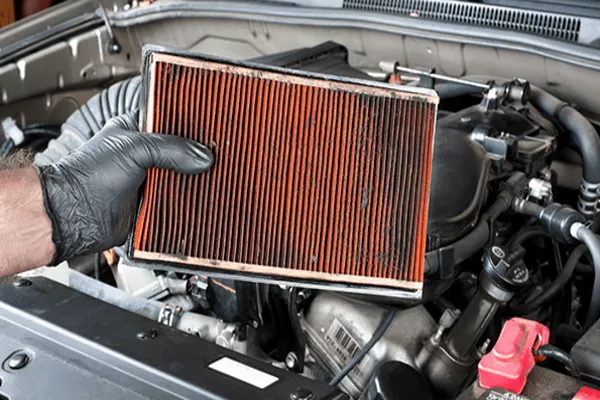
If the air filter of your car is already clogged, a limited amount of air can get into the internal combustion chamber
To fix this issue, you should replace the air filter of your vehicle and you will be good to go. If your air filter is the reusable type like the K&N, all you need to do is to clean it as stated on the manufacturer’s direction.
>>> Check out: 8 telltale signs that you need to replace your air filter.
4. Clogged exhaust pipe (diesel and gas engine)
The exhaust system has two filters: the catalytic converter and the muffler. The catalytic converter is responsible for cutting down the amount of pollution generated from the exhaust gasses.
On the other hand, the muffler is responsible for decreasing the amount of noise it is making. Once the exhaust pipe or its filters get obstructed, it will weaken the engine’s functionality by reducing its power and will make the car drive slowly when you try to gain speed.
An exhaust system that is clogged or obstructed is dangerous on any cars but it is even worse on a turbocharged car.
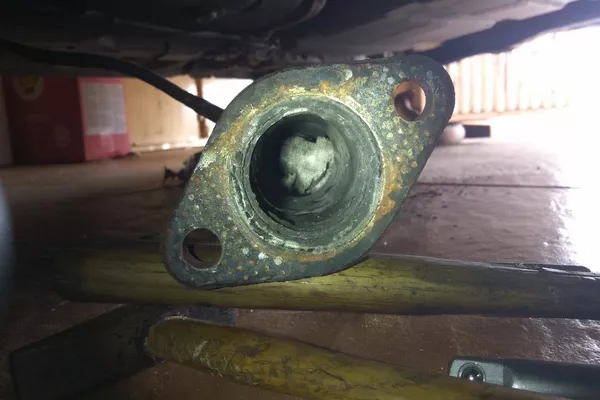
An exhaust system that is clogged is dangerous on any cars but it is even worse on a turbocharged car
5. Malfunctioning camshaft position sensor (diesel and gas engine)
The job of the camshaft position sensor of your car is to gather information about the car’s camshaft speed. It will then send the information to the electronic control module or the car’s ECM
ECM is a computer that is inside most modern cars. When the camshaft speed information is delivered to the ECM, the car's computer will be the one to manage the timing of both the ignition and fuel injection depending on the sent information.
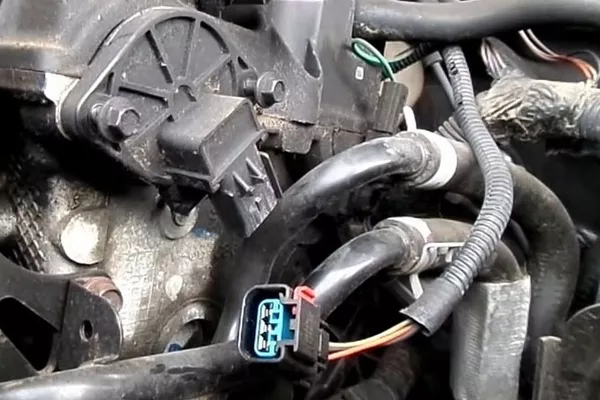
If the camshaft position sensor is malfunctioning, it will not be able to deliver the said information to the ECM
If the camshaft position sensor is malfunctioning, it will not be able to deliver the said information to the ECM. As a result, the engine’s performance will be greatly affected and will most probably not function properly.
>>> You might concern: 10 must-know car engine sensors.
6. Malfunctioning MAF sensor (gas engine)
The Mass Airflow Sensor is responsible for measuring the amount of air flowing into the engine. It will then report this information to the Power Control Module. Starting there, the module will be using the said data to calculate the load placed on the engine.
Once these sensors malfunction, the performance of the engine will be diminished.
7. Malfunctioning oxygen sensor (diesel and gas engine)
The oxygen sensor is responsible for measuring the number of gasses that are emitted by the engine of the car. The ECM utilizes this information to determine the real-time fuel-to-air ratio existing in the engine of the car.
You will find the oxygen sensor situated inside the car exhaust stream. It allows the fuel injection and engine timing to do their tasks efficiently. Additionally, the oxygen sensor also supports with emission control.
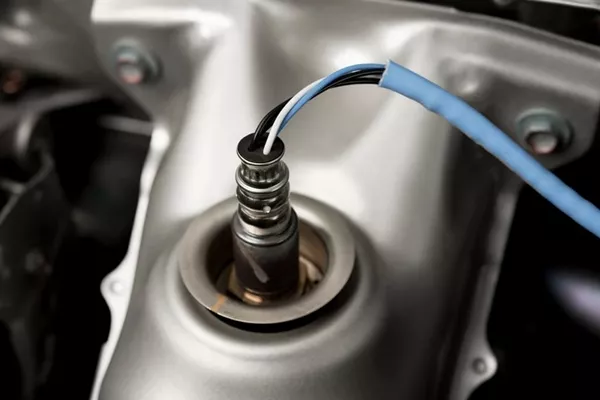
The oxygen sensor is responsible for measuring the number of gasses that are emitted by the engine of the car
However, if the oxygen sensor malfunctions, it will not be able to send accurate information about the fuel-to-air ratio to the ECM. As a result, the engine will start performing poorly and it will also negatively impact the environment.
Looking back to some of the main reasons why your car is losing power when accelerating, you will notice that there are lots of engine parts that can be the root cause of the problem. If you’re not that hands-on with your car, you might have a hard time figuring out the main cause of the issue.
The best thing to do is to contact a qualified mechanic to do the job for you. Additionally, proper maintenance should also be practiced regularly. This is the most effective way to prevent any mechanical car problem.
Recent posts
- 6 must-know facts about car engine temperature for a proper use Nov 30, 2022
- Car maintenance: How to check the engine's good coolant level Nov 30, 2022
- 6 steps to increase the power of four-cylinder car Aug 16, 2022
- Torque and horsepower: What is the difference? Dec 15, 2020
- How to flush and bleed power steering systems like an expert Mar 09, 2021


